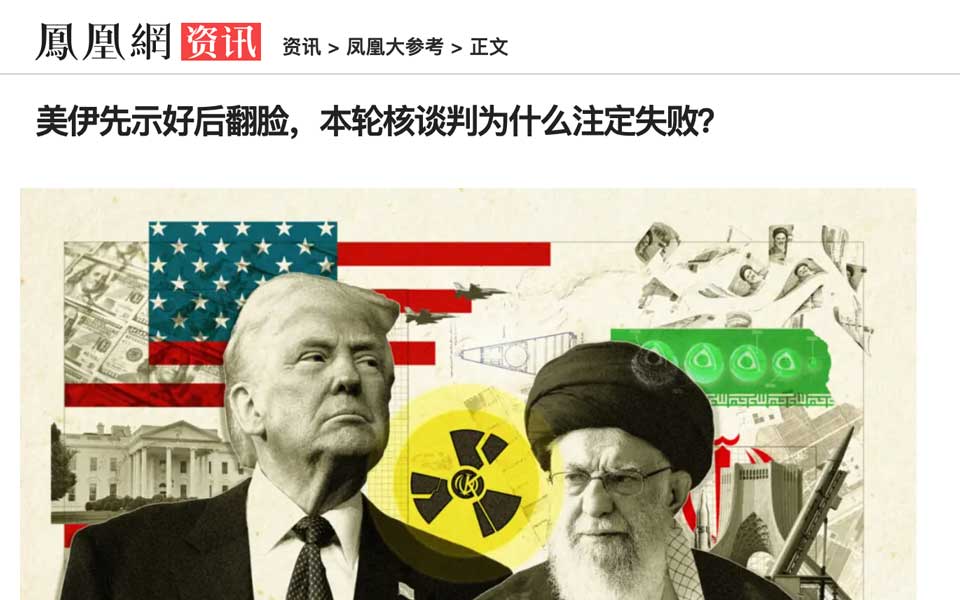
As the fifth round of the U.S.-Iran nuclear talks ends in deadlock, a recent commentary from Chinese outlet Phoenix News suggests the entire negotiation track may be doomed—undermined by strategic mistrust, asymmetric stakes, and Iran’s hard-learned refusal to surrender its nuclear leverage.
Titled “Friendly Gestures Then Broken Promises: Why the Latest U.S.-Iran Nuclear Talks Are Doomed to Fail?”, the article presents a detailed examination of why surrendering the right to enrich uranium is unacceptable for Tehran:
- Strategic Deterrence: Iran sees its nuclear capabilities—kept short of weaponization but technically feasible—as essential to deterring the U.S. and Israel, especially after losing key regional allies in Syria, Lebanon, and Gaza.
- Historical Precedent: Past experiences—like the U.S. withdrawal from the Obama-era nuclear deal—have taught Iran that relinquishing core capabilities without guaranteed, irreversible benefits leaves it vulnerable.
- Energy Sovereignty: Iran fears depending on foreign powers for nuclear fuel. The 1979 Islamic Revolution led to the cancellation of French-supplied nuclear cooperation, halting domestic energy development for decades.
- Economic Sanctions Are Multifaceted: Even if nuclear-related sanctions are lifted, broader financial restrictions remain due to Iran’s links to Hezbollah and other groups. These barriers, such as being cut off from SWIFT, have more impact than oil sanctions, which Iran has partially circumvented via shadow fleets and barter.
- Domestic Economic Dysfunction: The commentator argues that Iran’s economic crisis is rooted not just in sanctions but in systemic internal mismanagement. Lifting sanctions may not reverse the public’s preference for hard assets (gold, dollars, real estate), which has contributed to stagflation and monetary instability.
